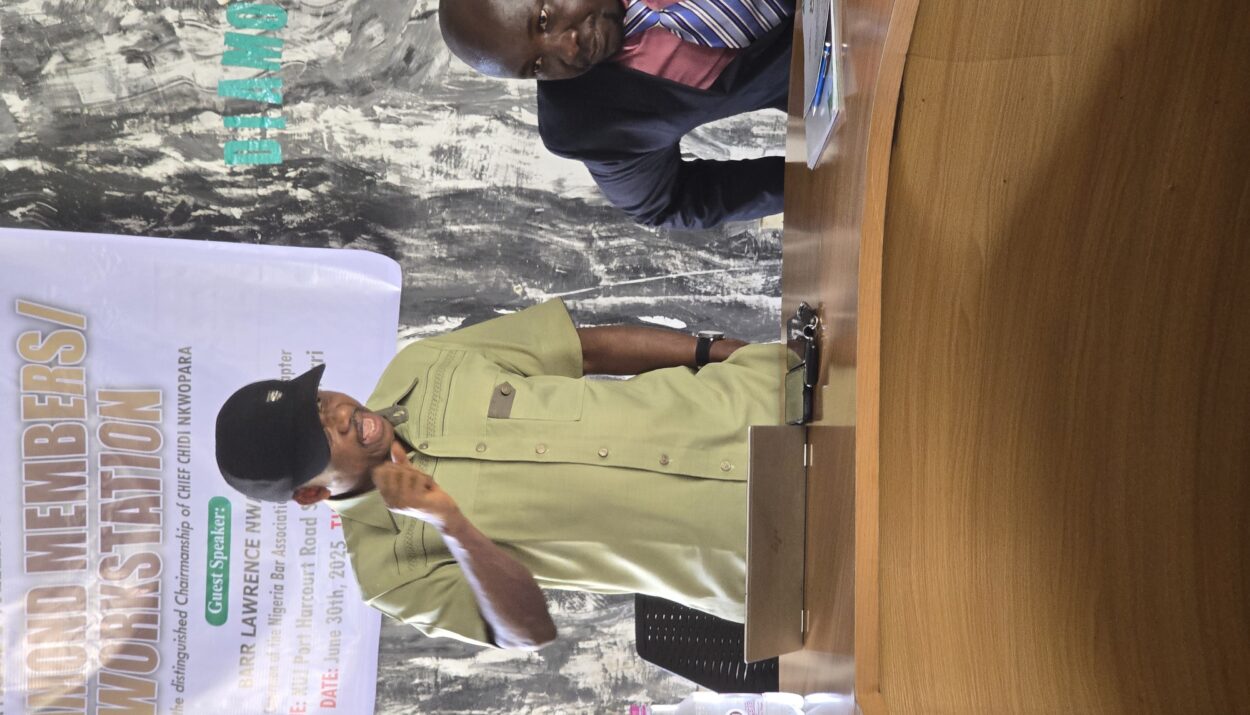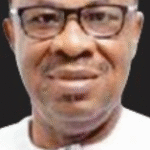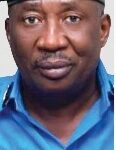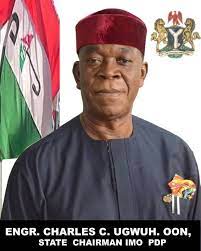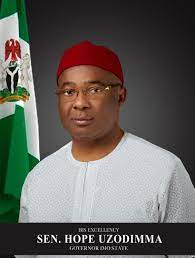– Delivers Keynote Address
The former Chairman of the Nigerian Bar Association (NBA) Owerri branch Barr L.U.N Nwakaeti, has described the media as a directional moral compass that plays a crucial role in shaping a healthy democracy and instilling democratic values among the people.
According to him, “the media is pivotal in democratic consolidation, particularly during elections, ensuring transparency and credibility by providing avenues through which citizens can demand accountability from their political leaders and representatives”.
Nwakaeti stated this while delivering a keynote address at the official opening of the Nigeria Union of Journalists (NUJ) Imo State Council’s workstation at the union’s Port Harcourt Road Secretariat on Monday June, 30, 2025.
Nwakaeti further said, “Some of the roles played by the media in deepening democracy includes
Promoting Good Governance by Investigating and exposing corruption, abuse of power, human rights violations, scrutinizing government actions/policies and holding public officials accountable.
Promoting Transparency by providing accurate and unbiased information to the public.
Fostering Public Debate by encouraging critical thinking and public engagement.
Section 22 of the 1999 Constitution recognizes the import of the media for sustainable democracy and provides thus;
“The press, radio, television and other agencies of the media shall at all times be free to uphold the fundamental objectives contained in this chapter and uphold the responsibility and accountability of the government to the people.”
To understand the very critical position of the media in every democratic setting, the above section must be read alongside Sec 39 (1), (2), which further provides as follows;
39(1) Every person shall be entitled to freedom of expression, including freedom to hold opinions and to receive and impact ideas and information without interference.
(2) Without prejudice to the generality of subsection (1) of this section, every person shall be entitled to own, establish and operate any medium for the dissemination of information, ideas and opinions…
In today’s democratic Nigeria, the responsibilities of the media have widened to include notable social responsibilities such as facilitating political discourse, educating voters and watchdogging electoral processes. Many African leaders today claim to run their states by supposedly adhering to the tenets of democracy, but fail to fully implement the ideals of democracy. They fail to allow a free press by curtailing people’s freedom of expression, muzzling the media, and turning the media to a state apparatus amplifying government’s policies and threats alone. This is unfortunately the case in Nigeria today, with Imo State as a case study.
The media is expected to empower the people by subjecting those in authority to critical scrutiny which ought to be done through investigative journalism. Investigative journalism probes government malfeasance through a series of investigative procedures and if done thoroughly could unravel sharp practices in government as well as hold government accountable. However, even though some media, especially, the print media still do this, the fervor of investigative journalism is eluding African countries especially Nigeria. This is as a result of
Cost of investigative journalism: Investigative journalism is very costly both in terms of money and human resources. Many journalists have lost their lives in the course of investigating top secret government malfeasance, and many media organizations, especially privately owned, have been muzzled through direct attack or repressed by policies of the government.
Media House: Most media organizations are owned by former governors or politicians or friends to the government, some of the privately owned broadcasting organizations are affiliated to some powerful politicians and owned by business people cum politicians. For instance;
Daily Independent owned by James Ibori, former Governor of Delta State
The Sun owned by Orji Uzor Kalu, former Governor of Abia State
The Nation and TVC owned by Bola Ahmed Tinubu
The Westerner and Compass, owned by Gbenga Daniel Former Governor of Ogun State, etc.
From the above, it is instructive to note that some of these media houses instead of objective reportage for the primary purpose of informing, enlightening and educating the populace are rather instruments in the hands of the powerful owners to further their political interests. In other words, they have become mere extensions of the partisan leaning of their respective owners. With this structure, one wonders why there seems to be no serious investigative journalism in Nigeria whereas no media owner would use his media apparatus to inhibit fellow friends in the seat of government.
Other challenges facing the media include;Government Interference and censorship which undermine the media’s ability to report freely.
Safety Concerns: Journalists face safety concerns, including harassment, intimidation and violence.
Fake News: The spread of fake news undermines the credibility of the media and public trust.
To curb these issues, it is paramount for state media owners and practitioners to know that, though they should make profit, the instrument of their work is so powerful that it affects people’s lives and as such see their obligation to the public as very vital.
Furthermore, media practitioners, especially government owned, should endeavor to stick to their professional code of conduct and not kowtow sheepishly to government officials or functionaries, by involving in deplorable acts such as brown enveloping, doctoring news stories to suit people in positions of authority, against sound professional standards. Such misconduct by media professionals detracts from responsible media practice that can deepen democratic values and should be avoided.
Similarly, the content of the media should reflect the culture, norms and morals of the society within which the media is located. Social media has now stepped in to fill the lacuna by the traditional press and people can now from the comfort of their homes air their opinions however flawed and malicious the same can be. We are now in the area of fake news and news manipulation using artificial Intelligence etc.
I sincerely believe that this dangerous era has become prevalent as a result of the abdication of its traditional responsibility by the traditional print and electronic media”.

